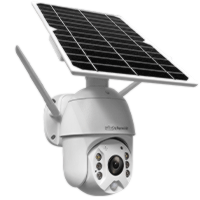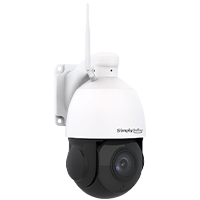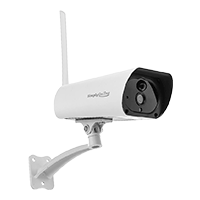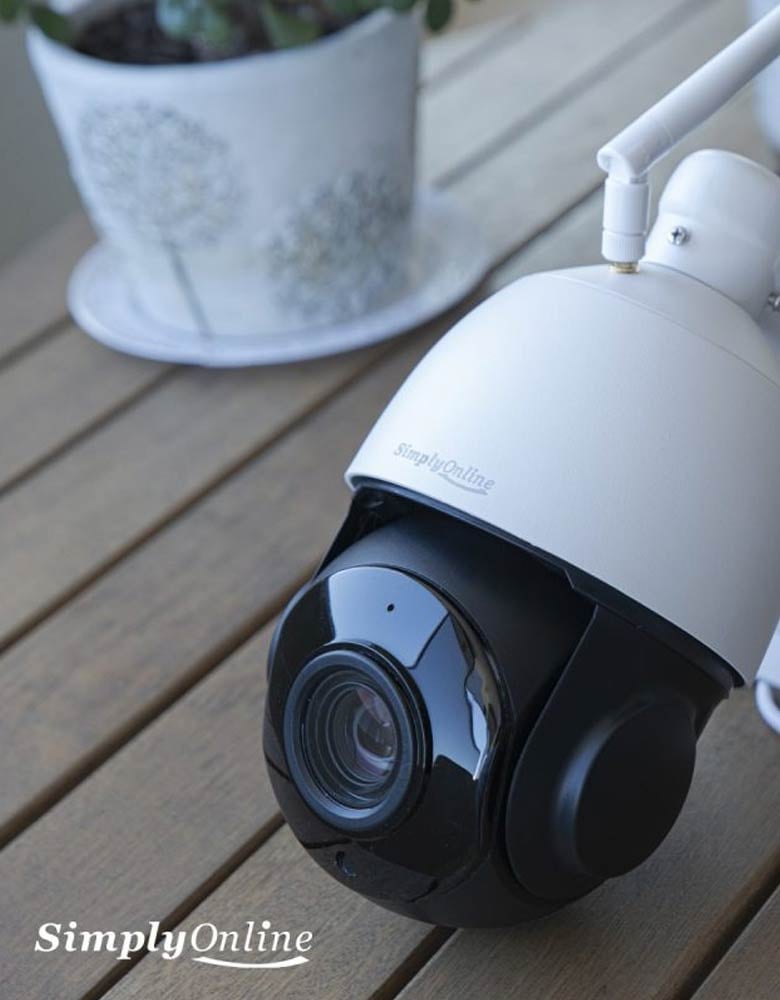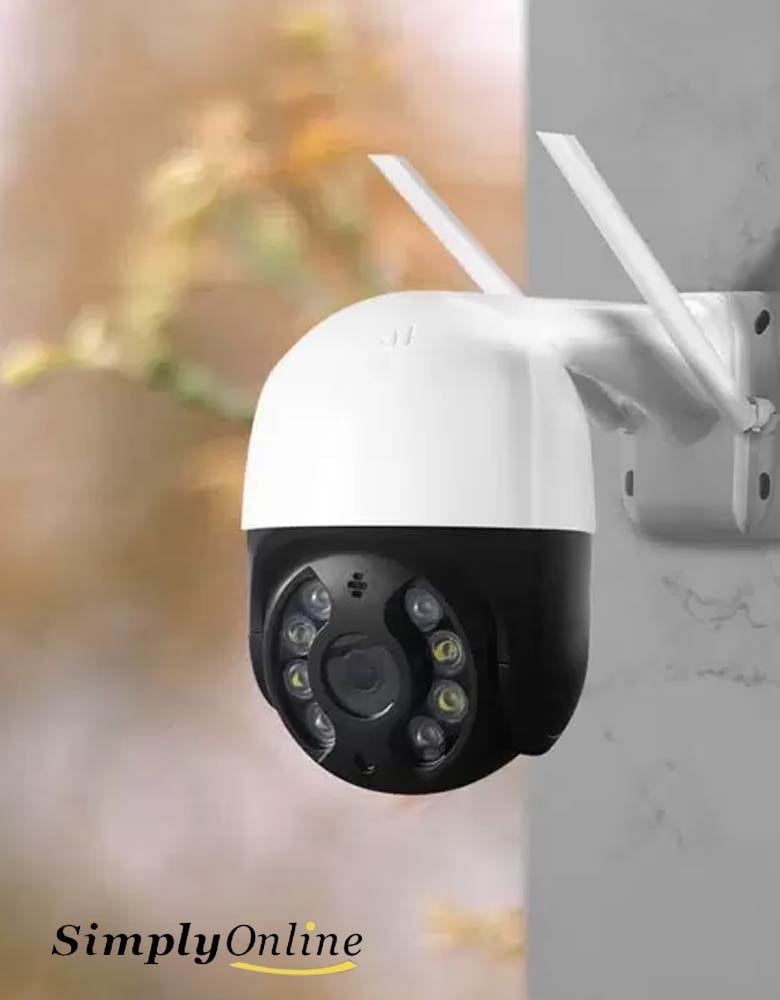Compare Different Cameras
Find out what kind of camera would be suitable for my situation.
What Kinda Camera Should I Buy??
If you're looking to select the appropriate camera for your requirements, the initial factor to contemplate is whether you have access to a 4G or WiFi network. Opting for a Wi-Fi camera would be an economical choice if your intended installation location has a Wi-Fi network available. This would help you save costs on monthly sim card data charges, which typically amount to around $15, and minimize concerns related to unreliable 4G networks.
However, in the event that WiFi is unavailable or difficult to acquire for the camera, 4G cameras can provide a solution. They function through 4G networks and can be installed in any location as long as access to 4G or 5G coverage is present.
These wifi-enabled surveillance cameras are ideal for keeping an eye on the indoors and outdoors of your property. They communicate with your wifi modem, so if you have good wifi coverage, this camera could be suitable for your needs.
4G cameras are surveillance devices that utilize a 4G SIM card; they are appropriate for agriculturalists, contractors, and remote locations. All you need is a 4G SIM card and access to 4G service. These cameras typically come with solar panel so they make an excellent zero-cable choice.
Compare Cameras
4G Cameras
The tables below display a range of 4G cameras from which you may select the optimal model to meet your needs.
| 4G Solar PTZ Compact | 4G Solar Bullet Compact | 4G Solar PTZ Massive 5MP | 4G Solar PTZ Massive 8MP | 4G PTZ Massive 8MP (AC Powered) | |
|---|---|---|---|---|---|
 |  |  |  |  | |
| AC Power | Not Needed | Not Needed | Not Needed | Not Needed | Needed |
| Modem (2.4ghz Wi-Fi) | Not Needed | Not Needed | Not Needed | Not Needed | Not Needed |
| Sim Card | Needed | Needed | Needed | Needed | Needed |
| Optical Zoom | |||||
| Record 24/7 | |||||
| Detect Human | |||||
| Detect Cars | |||||
| On Demand | |||||
| Pan & Tilt |
Recommendations for 4G Cameras
WiFi Cameras
The tables below display a range of Wi-Fi cameras from which you may select the optimal model to meet your needs.
| Wi-Fi Solar PTZ (Compact) | Wi-Fi Solar Massive PTZ | Wi-Fi PTZ Massive (AC Powered) | Wi-Fi PTZ (AC Powered) | |
|---|---|---|---|---|
 |  |  |  | |
| AC Power | Not Needed | Not Needed | Needed | Needed |
| Modem (2.4ghz Wi-Fi) | Needed | Needed | Needed | Needed |
| Optical Zoom | ||||
| Record 24/7 | ||||
| Detect Human | ||||
| Detect Cars | ||||
| On Demand | ||||
| Pan & Tilt |
Recommendations for WiFi Cameras
- What is the difference between WiFi and cellular cameras?
- What camera do I have to get?
- Do I need Solar or Should I get Hard wired camera?
WiFi Camera
A WiFi solar camera is a security camera that uses solar panels to power its battery and connects to a wireless network through WiFi to transmit footage to a mobile device or computer. This type of camera is typically installed in outdoor areas where access to electricity is limited, and it can function in a variety of weather conditions.
A WiFi solar camera is a security camera that uses solar panels to power its battery and connects to a wireless network through WiFi to transmit footage to a mobile device or computer. This type of camera is typically installed in outdoor areas where access to electricity is limited, and it can function in a variety of weather conditions.
- Require a WiFi connection to function.
- Transmit data over a wireless network.
- Can be installed easily, without the need for cables.
- Store data on the cloud, which may incur subscription costs.
Cellular Cameras (4G Cameras)
A 4G solar camera is a security camera that runs on cellular data and is powered by solar panels. It uses 4G LTE or 3G cellular network to transmit video, audio, and other data to a remote location, such as a smartphone or a computer. This type of camera is ideal for outdoor environments where there is no access to a power source or a wired internet connection, such as parking lots, farms, construction sites, etc. The solar panels recharge the camera's battery during the day, ensuring continuous operation without the need for manual intervention.
- Connect to a cellular network to function.
- Don't require WiFi, and can be installed anywhere.
- Requires a cellular plan to transmit and store data.
- Can be more expensive to operate due to the cellular data plan.
Which type of camera you choose depends on your specific needs. If you need a camera that can be installed anywhere without the need for cables and WiFi, a cellular camera may be the best option. But if you have a stable WiFi network and don't want the added expense of a cellular data plan, then a WiFi camera will suffice.
Other industries and individuals that may also use 4G solar cameras include:
- Security Companies - to monitor and secure properties.
- Wildlife Researchers - to study animals in their natural habitat.
- Environmentalist - to monitor illegal activities, such as deforestation or pollution.
- Emergency Services - to monitor and assess disaster zones.
- Remote locations - to monitor areas without access to power or internet.
- Construction Sites - to monitor and secure construction sites, and to monitor work progress remotely.
- Homeowners - to monitor their property and keep an eye on their pets.
- Farmers - to monitor crops, livestock, and access to water sources.
- Outdoor enthusiasts - to capture and document outdoor experiences.
- Traffic management - to monitor and manage traffic flow in busy areas.
Solar or HardWire (AC Camera)
Regarding Solar or Hardwired camera, again, it depends on your specific needs. If you have a location with good sun exposure and it's not easy to run a power line to the location, then a solar-powered camera is ideal. But if you can run power to the location easily and don't want to worry about battery life, then a hardwired camera is the best option.

Compare Different Cameras
